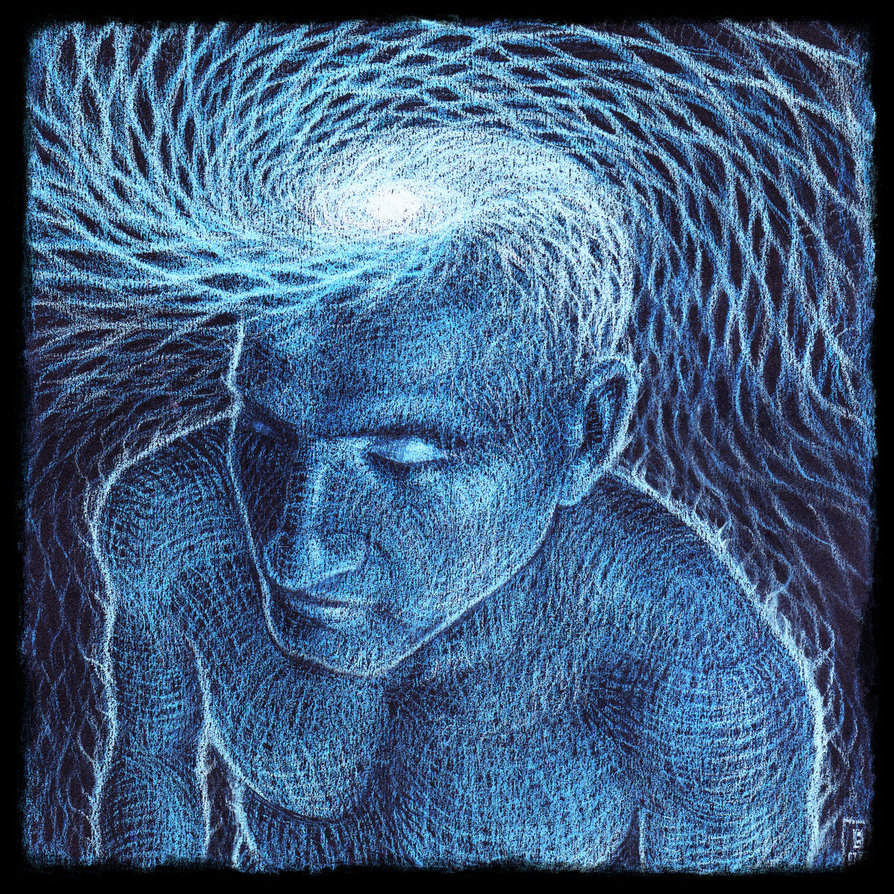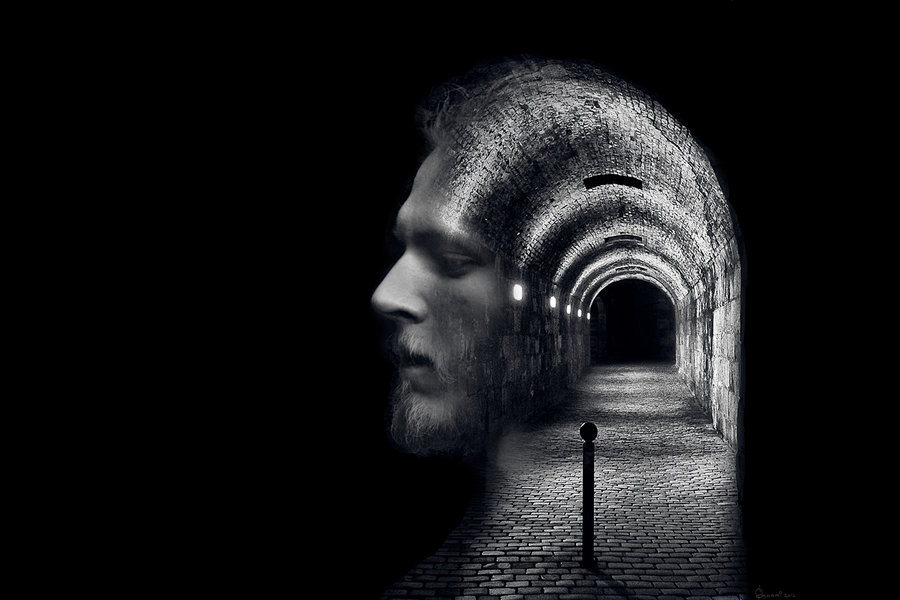Fog enshrouds the small town as I enter the mountain community from the valley below. With a few hundred meters more elevation, the fog clears, though the skies remain cloudy. Reaching the man-made lake, there’s a brightening, and even a patch of blue.
 A few men with pickup trucks loaded with tools are fishing on the stump-strewn shoreline of the receded lake. They joke about playing hooky from work for a couple of hours at mid-day.
A few men with pickup trucks loaded with tools are fishing on the stump-strewn shoreline of the receded lake. They joke about playing hooky from work for a couple of hours at mid-day.
I walk about a mile to the far end of the reservoir. A storm brought a good amount of rain the previous night, and everything is still drenched. Indeed, the area is supersaturated, and the heavy, misty air adds depth and dimensionality to the palpable silence of the place.
Walking down to the edge of the water, I’m overwhelmed by the stillness and beauty of the odiferous woods, glassy water and refracted sky. It’s the kind of place in which you find yourself almost holding your breath. The lake is completely calm, and not a man-made sound can be heard, except when the fellows fishing talk to each other over half mile away across the water.
Suddenly a large flock of Canadian geese, honking at the top of their lungs, swoops in and glides to a halt on the water. Then another flock, flying in from a couple miles away over the ridge beyond the dam, answers their honking, and the sound reverberates across the lake.
This place is an echo chamber of the cosmos, a watery Arecibo. A self-knowing individual can hear the infinite silence of the universe at this place, which can only be called sacred.
Some trucks start up in the distance, and an infernal back-up beeper rings out, jarring me back to the reality of this world. Walking in, there was evidence of recent logging around the lake, and it’s obviously resuming on a distant ridge.
Listening without resistance or reaction, the stillness and silence of the universe envelop the man-made noise. Then, surprisingly, it stops, allowing one to appreciate the extraordinary place and moment all the more.
The human brain itself is, potentially, a powerful receiver for the background awareness and intelligence of the universe. But paradoxically, ‘higher thought,’ which gives us this capacity, blocks reception, and therefore has to fall completely still. When the brain is free, even momentarily, of its enslavement to words, images and memories, then one hears what is beyond the range of our ears, senses and thought.
Undoubtedly evolution, like the laws of physics, follows the same principles throughout the universe. Probably creatures with symbolic thought have evolved on other planets, albeit rarely. And because thought tends, due to its inherently separative nature, to produce fragmentation and chaos, no doubt other sentient, potentially sapient creatures have had to meet the same crisis of consciousness presently coming to a head on this planet.
With the right conditions (liquid water especially), and enough time, a diversity and complexity of life forms probably emerge anywhere in the universe. Eventually sentient beings like us appear, and they probably pass through the same self-made crucible of fragmentation, threatening the viability and diversity of life on their planets. They may look nothing like us, but the basic characteristics of symbolic thought, language and technology are probably common to all potentially intelligent life. Within the lifetimes of many people now living, we may well find out if this new theory of human nature is valid.
To awaken insight and unburden the brain of the accretions of memory and the known in the here and now, we have to give the highest value to innocence. Only the heart that is empty and dead derides innocence, seeking to destroy it because it has lost the capacity to see and feel anew.
to innocence. Only the heart that is empty and dead derides innocence, seeking to destroy it because it has lost the capacity to see and feel anew.
‘Higher thought’ is not the aim of evolution, and there is no teleological goal, but I propose there is an intrinsic intent in cosmic evolution to evolve brains capable of celestial awareness and creative participation with intelligence beyond thought. Awareness did not evolve only in man; awareness is inherent in the universe. Therefore, though symbolic thought is a necessary evolutionary step to realizing the intrinsic intent of the universe, thought is also the greatest impediment in sentient species to awakening awareness and intelligence.
That’s because thought is an inherently separative mechanism, one that strongly tends to dominate the brain and society (to the point that most people are don’t realize there is awareness without thought). Without self-knowing and insight, thought inevitably generates more and more fragmentation—inwardly, ecologically and socially.
The human species is enormously successful. Our numbers have grown to seven billion in a mere 10,000 years. But we’re destroying the earth and ourselves. Climate change, mass extinctions, unconscionable poverty and increasing conflict mean that sentient life on Earth must make the transition to sapient life, which cannot occur through genetic engineering.
The future of humanity depends on the living generations igniting insight within ourselves through self-knowing. That means seeing into the operation of our cognitive capabilities, and quieting the mind-as-thought in inclusive, undirected attention to its movement within one.
Then, with a quiet mind and humble heart, our innate, latent capacity to hear and participate in the silence, sacredness and intelligence of the universe awakens within us.
Martin LeFevre

